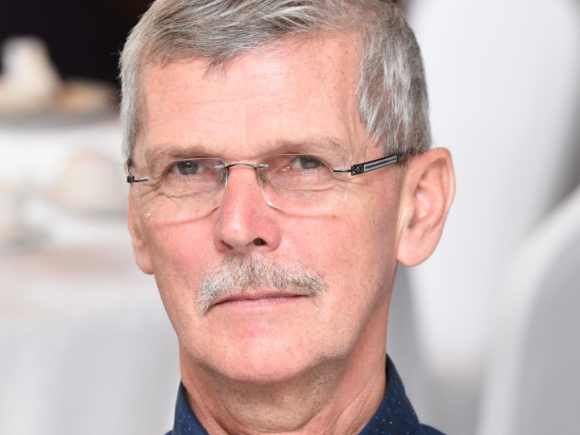
Ian Clarke embarked on a remarkable journey of healthcare development in Uganda after completing the Short Course in DTM&H.
Upon graduating in 1987, Ian set his sights on Uganda, a country grappling with the devastating HIV epidemic and recovering from a civil war that took place between 1982 and 1986. The nation was burdened not only by the aftermath of war but also by the AIDS epidemic that was wreaking havoc on its population.
Ian and his wife decided to settle in the war-affected Luweero Triangle, where they witnessed the ruins of destroyed buildings and a prevailing sense of hopelessness. Undeterred, they worked with the community under the Church Mission Society and the Church of Uganda, and together, they built a faith-based hospital called Kiwoko Hospital. Over the next five years, their efforts bore fruit, as Kiwoko Hospital grew to have 200 beds, a nursing school, a laboratory technicians' training school, a well-run NICU for mothers and children, and a comprehensive community health program.
His commitment to improving healthcare in Uganda led him to pursue a Master's in Public Health at the London School of Hygiene and Tropical Medicine. Even with his academic pursuits, Ian continued to work in Uganda and took the initiative to establish a GP clinic in Kampala. The clinic expanded over time, transforming into the International Hospital, Kampala's leading private hospital, with twenty outpatient clinics and a medical insurance company – all self-sustained through fees without government subsidies.
His dedication to fostering healthcare education also led to the founding of a nursing school, which evolved into the University of Health Sciences and eventually expanded to become Clarke International University (CIU).
Living in a part of Kampala with numerous challenges, including poor infrastructure and disease outbreaks, Ian decided to run for the local government elections and was elected as Mayor of Makindye Division. In this role, he focused on public health interventions, resulting in significant improvements in the living conditions and a decline in disease outbreaks during his five-year tenure.
Throughout his 35 years in Uganda, Ian's development efforts extended beyond traditional aid agency models. He played a key role in the healthcare sector, chairing the Uganda Healthcare Federation, which represented the private health sector. Additionally, he ventured into commercial farming, establishing a coffee farm as a model for sustainable and climate-resilient agricultural practices.
Beyond his professional achievements, Ian authored several books, including "The Man with the Key Has Gone" and the "Smart Culture Guide to Uganda." He even contributes to the national newspaper 'Sunday Vision' with a weekly social commentary.
Ian's dedication to mentoring and guiding Ugandan youth reflects his commitment to nurturing the next generation of healthcare professionals and leaders.
Married to his wife, and both holding Ugandan/Irish citizenship, Ian is proud to have two children working alongside him in his businesses, which now extend to South Sudan and Zanzibar. Another child is making a significant impact as a haematology cancer nurse in Ireland.
Ian Clarke's journey at LSTM played a pivotal role in transforming him from a GP in Northern Ireland to a visionary healthcare leader in a rural African environment. His advice to prospective students is simple: embrace the experience, enjoy the camaraderie with fellow students from diverse backgrounds, and make the most of the opportunities to create positive change in the world.